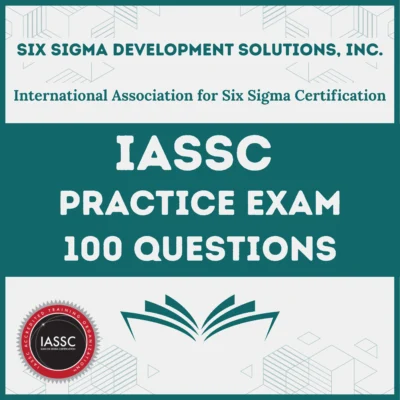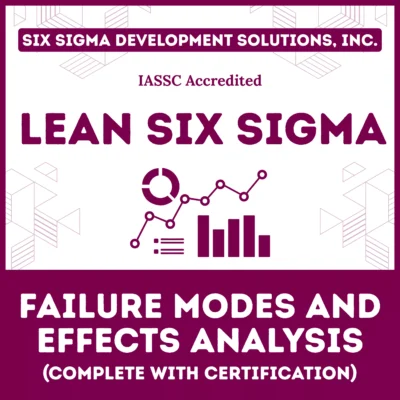Understanding audit in Six Sigma represents a critical component of successful quality management systems and continuous improvement initiatives. Organizations worldwide rely on systematic auditing processes to verify Six Sigma implementation effectiveness and ensure sustainable process improvements.
Table of contents
What is Audit in Six Sigma?
Audit in Six Sigma involves systematic examination and evaluation of processes, procedures, and outcomes to verify compliance with Six Sigma standards and methodologies. This comprehensive assessment ensures that organizations maintain quality excellence and achieve intended performance improvements.
Six Sigma audits examine various aspects including project execution, statistical analysis accuracy, process control measures, and sustainability of improvements. These evaluations provide objective feedback on implementation effectiveness and identify areas requiring attention.
Furthermore, Six Sigma auditing extends beyond simple compliance checking to encompass performance measurement, best practice identification, and continuous improvement opportunities. This holistic approach ensures maximum value from quality initiatives.
Public, Onsite, Virtual, and Online Six Sigma Certification Training!
- We are accredited by the IASSC.
- Live Public Training at 52 Sites.
- Live Virtual Training.
- Onsite Training (at your organization).
- Interactive Online (self-paced) training,
Types of Six Sigma Audits

Process Audits
Process audits check how well a company follows Six Sigma methods in its operations. They look at process documents, controls, and if teams follow set procedures.
Auditors review process maps, standard operating procedures, and measurement tools to make sure everything matches Six Sigma standards. This helps keep processes on track and producing the right results.
Project Audits
Project audits review individual Six Sigma projects from start to finish. They check if the team uses the right methods, analyzes data correctly, and meets project goals.
Teams do audits at key points in the project to make sure they follow the DMAIC steps (Define, Measure, Analyze, Improve, Control) and use data properly. This helps keep the project focused and on track.
System Audits
System audits look at the whole Six Sigma program, including training, certification, and support systems. These audits check how mature and effective the program is.
They also review leadership support, resource use, and how well Six Sigma is built into the company culture. This helps guide improvements and keep the program strong.
Compliance Audits
Compliance audits make sure the company follows Six Sigma rules, industry standards, and legal requirements. These checks help companies stay certified and meet stakeholder needs.
Auditors look at documents, training records, and performance data to confirm everything is in line with requirements. This protects the company from legal problems and builds trust.
Six Sigma Audit Process

Audit Planning Phase
Effective Six Sigma audits begin with comprehensive planning that defines scope, objectives, and success criteria. Audit teams develop detailed plans including resource requirements, timelines, and evaluation methods.
Planning activities include stakeholder identification, risk assessment, and audit criteria development. Teams also establish communication protocols and reporting structures to ensure smooth audit execution.
Pre-Audit Activities
Pre-audit activities involve document review, team briefings, and logistics coordination. Auditors examine relevant documentation including process maps, control plans, and previous audit results.
Teams conduct orientation sessions to explain audit purposes, methods, and expectations to all participants. This preparation ensures everyone understands their roles and responsibilities during the audit process.
Audit Execution
During audit execution, teams gather evidence through observations, interviews, and document reviews. Auditors use structured checklists and evaluation criteria to ensure comprehensive assessment coverage.
Field work includes process observations, data collection verification, and stakeholder interviews. Teams maintain detailed records of findings and supporting evidence throughout the examination process.
Reporting and Follow-up
Audit reporting communicates findings, conclusions, and recommendations to relevant stakeholders. Reports include executive summaries, detailed findings, and action plans for addressing identified issues.
Follow-up activities ensure organizations implement corrective actions and verify improvement effectiveness. Auditors track progress against established timelines and validate resolution of identified deficiencies.
Key Elements of Six Sigma Audits

DMAIC Methodology Assessment
Auditors evaluate how effectively organizations apply DMAIC methodology across their improvement projects. This assessment examines each phase for proper execution and logical progression.
The evaluation includes reviewing project charters, stakeholder analysis, measurement system studies, statistical analysis methods, and control plan implementation. Teams verify that projects follow structured approaches and achieve measurable results.
Statistical Analysis Validation
Six Sigma audits carefully examine statistical methods and conclusions to ensure accuracy and appropriateness. Auditors review data collection procedures, analysis techniques, and interpretation of results.
This validation includes checking sample sizes, statistical assumptions, hypothesis testing procedures, and confidence interval calculations. Teams verify that statistical conclusions support recommended actions and improvements.
Process Control Verification
Auditors assess process control systems including statistical process control charts, monitoring procedures, and response protocols. This evaluation ensures processes maintain stability and performance.
The assessment examines control chart selection, data collection frequency, control limit calculations, and out-of-control response procedures. Teams verify that control systems effectively prevent process degradation.
Training and Competency Evaluation
Six Sigma audits evaluate training programs and individual competencies to ensure proper knowledge and skill development. This assessment examines curriculum content, delivery methods, and competency validation.
Auditors review training records, certification requirements, and ongoing development programs. Teams verify that personnel possess necessary knowledge and skills to execute Six Sigma methodologies effectively.
Audit Tools and Techniques

Checklists and Protocols
Standardized checklists ensure comprehensive audit coverage and consistent evaluation criteria across different assessments. These tools guide auditors through systematic examination processes and prevent oversight.
Organizations develop customized checklists based on their specific Six Sigma implementation requirements and industry standards. Regular updates ensure checklists remain current and relevant.
Sampling Methods
Auditors use statistical sampling techniques to select representative samples for examination when complete population review is impractical. These methods ensure unbiased selection and valid conclusions.
Sampling approaches include random sampling, stratified sampling, and systematic sampling depending on audit objectives and population characteristics. Proper sampling reduces audit time while maintaining reliability.
Data Analysis Tools
Six Sigma audits employ various data analysis tools including control charts, capability studies, and hypothesis testing. These analytical methods help auditors evaluate process performance and improvement effectiveness.
Teams use statistical software and analytical tools to process large datasets and identify patterns or trends. This analysis provides objective evidence for audit conclusions and recommendations.
Documentation Review
Systematic documentation review examines policies, procedures, work instructions, and records for completeness and accuracy. This assessment ensures documentation supports effective Six Sigma implementation.
Auditors evaluate document control systems, revision processes, and accessibility to verify information currency and availability. Proper documentation enables consistent process execution and knowledge transfer.
Also Read: What is Process Audit?
Benefits of Six Sigma Auditing
Quality Assurance
Regular auditing provides independent verification that Six Sigma processes operate as designed and deliver expected quality outcomes. This assurance builds confidence among stakeholders and customers.
Audits identify potential quality issues before they impact customers or business results. Early detection enables proactive correction and prevents costly quality failures.
Continuous Improvement
Six Sigma audits identify improvement opportunities that organizations might otherwise overlook. These insights drive continuous enhancement of processes and methodologies.
Audit findings often reveal best practices that can be shared across the organization. This knowledge sharing accelerates improvement adoption and maximizes program benefits.
Risk Management
Systematic auditing helps organizations identify and mitigate risks associated with process variations, compliance failures, and performance degradation. This proactive approach prevents serious problems.
Audits evaluate risk control measures and their effectiveness in preventing undesired outcomes. Regular assessment ensures risk management systems remain adequate and current.
Organizational Learning
Audit processes facilitate organizational learning by sharing knowledge, identifying training needs, and promoting best practice adoption. This learning culture supports continuous development.
Teams gain valuable insights from audit findings and recommendations that enhance their problem-solving capabilities and process improvement skills.
Common Audit Challenges and Solutions
Resource Constraints
Limited audit resources can compromise examination thoroughness and frequency. Organizations address this challenge through risk-based audit planning and efficient audit methods.
Teams prioritize high-risk areas and critical processes for more frequent and detailed examination. This approach maximizes audit value while managing resource constraints effectively.
Stakeholder Resistance
Some stakeholders may resist audit activities due to concerns about criticism or additional workload. Organizations overcome resistance through clear communication and collaborative approaches.
Audit teams emphasize audit benefits and position assessments as improvement opportunities rather than fault-finding exercises. This positive framing encourages cooperation and engagement.
Technical Complexity
Six Sigma methodologies involve sophisticated statistical techniques that require specialized knowledge for proper evaluation. Organizations address this challenge through auditor training and expert support.
Teams provide auditors with necessary technical training and access to subject matter experts when needed. This support ensures competent evaluation of complex technical elements.
Documentation Challenges
Inadequate or incomplete documentation can hinder audit effectiveness and limit examination scope. Organizations address this issue through improved documentation standards and practices.
Teams establish clear documentation requirements and provide training on proper record-keeping practices. Regular documentation reviews ensure compliance with established standards.
Best Practices for Six Sigma Auditing
Risk-Based Approach
Effective audit programs use risk-based approaches to prioritize audit activities and allocate resources efficiently. This strategy focuses attention on areas with highest potential impact.
Organizations assess process criticality, performance history, and stakeholder concerns when developing audit schedules. Risk assessment ensures audits address the most important areas first.
Competent Audit Teams
Successful Six Sigma audits require competent auditors with appropriate technical knowledge and auditing skills. Organizations invest in auditor development and certification programs.
Teams combine Six Sigma expertise with auditing experience to ensure comprehensive and accurate assessments. Ongoing training maintains auditor competency and effectiveness.
Clear Communication
Effective communication throughout the audit process builds trust, encourages cooperation, and ensures accurate understanding of findings and recommendations.
Audit teams establish clear communication protocols, provide regular updates, and ensure all stakeholders understand audit purposes and benefits. Open communication prevents misunderstandings and conflicts.
Technology Integration
Modern audit programs leverage technology tools for data collection, analysis, and reporting. These solutions improve audit efficiency and accuracy while reducing manual effort.
Organizations use audit management software, mobile data collection tools, and automated reporting systems to streamline audit processes and enhance capabilities.
Measuring Audit Effectiveness
Key Performance Indicators
Organizations track various metrics to evaluate audit program effectiveness including audit completion rates, finding closure rates, and stakeholder satisfaction scores.
Teams monitor audit cycle times, cost per audit, and return on investment to assess program efficiency and value creation. Regular measurement enables continuous program improvement.
Quality Metrics
Audit quality metrics include finding accuracy rates, report quality scores, and follow-up effectiveness measures. These indicators ensure audits provide reliable and actionable insights.
Organizations conduct audit quality reviews and seek stakeholder feedback to identify improvement opportunities and maintain high standards.
Impact Assessment
Audit impact assessment measures how effectively audit findings drive process improvements and performance enhancements. This evaluation demonstrates audit program value.
Teams track improvement implementation rates, cost savings achieved, and performance gains realized through audit recommendations. Impact measurement justifies audit program investments.
Technology in Six Sigma Auditing
Digital Audit Tools
Digital audit platforms streamline audit processes through automated scheduling, electronic checklists, and real-time reporting capabilities. These tools improve audit efficiency and consistency.
Organizations implement cloud-based audit systems that enable remote access, collaborative working, and integrated data management. Digital solutions reduce paperwork and administrative burden.
Data Analytics
Advanced data analytics tools help auditors identify patterns, trends, and anomalies in large datasets. These capabilities enhance audit insights and enable predictive analysis.
Teams use business intelligence platforms and statistical software to analyze audit data and generate actionable insights. Analytics-driven auditing improves decision-making and targeting.
Mobile Technology
Mobile devices enable auditors to collect data, access information, and complete assessments directly in the field. This technology improves audit efficiency and data accuracy.
Mobile applications provide offline capability, photo capture, and voice recording features that enhance audit documentation and evidence collection.
The Future of Six Sigma Auditing
Predictive Auditing
Future audit approaches will leverage predictive analytics and artificial intelligence to identify potential issues before they occur. This proactive strategy prevents problems rather than detecting them after occurrence.
Organizations will use machine learning algorithms to analyze process data and predict audit findings. Predictive capabilities enable preventive actions and risk mitigation.
Integrated Quality Systems
Six Sigma auditing will increasingly integrate with other quality management systems including ISO standards, regulatory compliance, and environmental management. This integration improves efficiency and reduces duplication.
Real-Time Monitoring
Continuous monitoring systems will provide real-time process data that enables ongoing audit activities rather than periodic assessments. This approach ensures immediate detection and correction of issues.
Regulatory Considerations
Industry Standards
Six Sigma audits must consider relevant industry standards and regulatory requirements that affect process design and operation. These standards provide baseline requirements for audit evaluation.
Organizations ensure audit criteria align with applicable standards including ISO 9001, FDA regulations, and industry-specific requirements. Compliance verification protects against regulatory issues.
Documentation Requirements
Regulatory environments often mandate specific documentation and record-keeping requirements that audits must verify. These requirements ensure traceability and accountability.
Audit teams examine document control systems, retention policies, and access controls to verify compliance with regulatory documentation requirements.
Building Audit Capability
Training Programs
Organizations develop comprehensive training programs to build internal audit capability and reduce dependence on external resources. These programs cover both Six Sigma methodology and auditing skills.
Training curricula include technical content, communication skills, and ethical considerations. Regular training updates ensure auditors remain current with evolving practices and requirements.
Certification Processes
Formal certification processes validate auditor competency and provide recognition for professional development. These programs ensure consistent audit quality across the organization.
Organizations implement internal certification programs or utilize external certifying bodies to validate auditor qualifications and maintain professional standards.
Final Words
Audit in Six Sigma serves as a vital mechanism for ensuring quality excellence, verifying process effectiveness, and driving continuous improvement. Organizations that implement systematic audit programs achieve better Six Sigma outcomes and sustain performance improvements over time.
Successful Six Sigma auditing requires careful planning, competent execution, and effective follow-up activities. The integration of modern technology and analytical tools enhances audit capabilities and provides deeper insights into process performance.
The future of Six Sigma auditing will embrace predictive analytics, real-time monitoring, and integrated quality systems. Organizations that adapt to these evolving approaches will achieve superior quality outcomes and competitive advantages.
Building internal audit capability through training, certification, and best practice adoption enables organizations to maximize the value of their Six Sigma investments and achieve sustainable operational excellence.
Frequently Asked Questions on Audit in Six Sigma
What does audit mean in Six Sigma methodology?
Audit in Six Sigma involves systematic examination and evaluation of processes, procedures, and outcomes to verify compliance with Six Sigma standards and methodologies. It ensures organizations maintain quality excellence and achieve intended performance improvements through comprehensive assessment of implementation effectiveness.
What are the types of Six Sigma audits?
The main types include process audits (evaluating methodology implementation), project audits (assessing individual Six Sigma projects), system audits (examining overall Six Sigma infrastructure), and compliance audits (verifying adherence to standards and regulations). Each type serves specific evaluation purposes.
How do you conduct a Six Sigma audit?
The audit process includes planning phase (defining scope and objectives), pre-audit activities (document review and team briefing), audit execution (gathering evidence through observations and interviews), and reporting with follow-up (communicating findings and tracking corrective actions).
How do you measure Six Sigma audit effectiveness?
Effectiveness is measured through key performance indicators (completion rates, finding closure rates), quality metrics (finding accuracy, report quality), and impact assessment (improvement implementation rates, cost savings achieved). Regular measurement enables program improvement.
What is the future of Six Sigma auditing?
The future includes predictive auditing using artificial intelligence, integrated quality systems combining multiple standards, real-time monitoring for continuous assessment, and advanced data analytics for deeper insights. These developments enable more proactive and efficient auditing approaches.



















